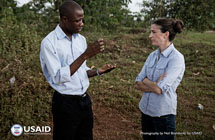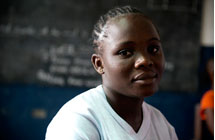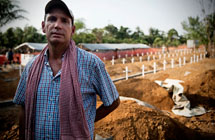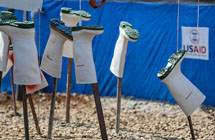EBOLA THE RECOVERY
EBOLA: THE RECOVERY
The Ebola Virus outbreak derailed lives and livelihoods in some of the most vulnerable countries in the world, infecting over 28,600 people in Guinea, Sierra Leone and Liberia, killing 11,300. In response, USAID led a U.S. Government effort, to contain the disease and bring the number of cases to zero. Despite this success, Ebola related fears and restrictions continue to have direct, negative impacts in all three countries. These include: a retraction in previous development gains; severely disrupted economic and social activity; and a decline in the delivery of essential government services.
USAID, in partnership with the host governments and international donors, is implementing a robust set of development programs to address the second order impacts and ensure that Guinea, Sierra Leone, Liberia and other nations in the region are prepared to effectively prevent, detect, and respond to future outbreaks.
FOCUS AND IMPACT OF EBOLA
USAID/Food for Peace, Global Health, and Global Development Lab Ebola recovery efforts aim to prevent the loss of development gains and strengthen key institutions and infrastructures whose weaknesses enabled the rapid spread of Ebola, or slowed the response.
5 KEY TARGET INTERVENTIONS
FOOD SECURITY
HEALTH SERVICES AND HEALTH SYSTEMS
INNOVATION TECHNOLOGY AND PARTNERSHIPS
GOVERNANCE & ECONOMIC CRISIS MITIGATION
GLOBAL HEALTH SECURITY AGENDA










